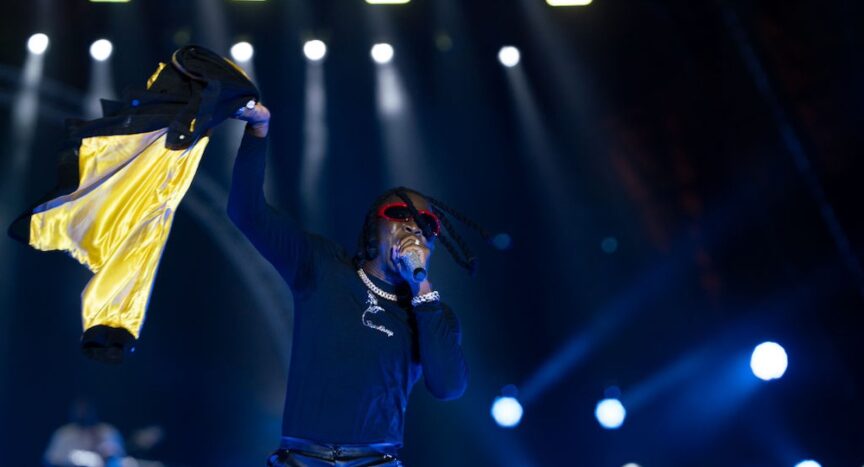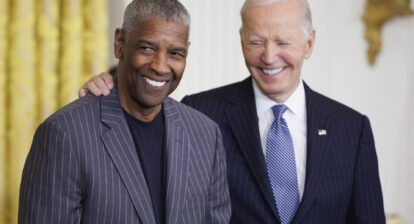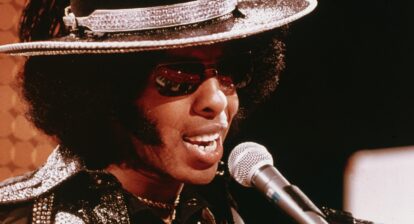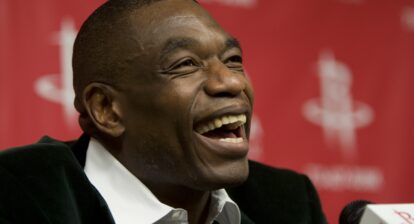Ghanaian Afro-dancehall artist Stonebwoy’s sixth studio album, Up & Runnin6, is out now. It marks a significant milestone as his first independent release under his Burniton Music Group, distributed through Warner Music Group’s ADA.
The 13-track project showcases Stonebwoy’s commitment to authenticity, seamlessly blending traditional African sounds with contemporary beats to create a dynamic fusion that celebrates his heritage.

Up & Runnin6 features an impressive lineup of collaborations, including Jamaican dancehall queen Spice on the track “Jiggle and Whine,” which Stonebwoy describes as tapping into “that kind of dancehall sound that [people] miss.” The album also includes contributions from Wyclef Jean on “Pray For Me,” Jahmiel, 10TIK, and Larruso on “OVERLORD,” and ODUMODUBLVCK on “EKELEBE,” among others.
This release comes at a time when global attention is increasingly focused on African music, with Ghana playing a pivotal role. Stonebwoy notes that “Ghana has always been the foundation to many of these genres,” emphasizing the country’s influence on the evolution of Afrobeats from highlife music. His dedication to highlighting this rich musical heritage is evident throughout the album, aiming to remind listeners of the authentic sounds that have shaped contemporary African music.

Beyond his musical endeavors, Stonebwoy has been balancing his career with academic pursuits. He recently graduated with a degree from the Ghana Institute of Management and Public Administration and is currently enrolled in an MBA program at the University of Ghana. Despite a demanding schedule that includes performances at major events like the African Games Finals and the Ghanaian Music Awards, where he garnered multiple accolades, Stonebwoy remains committed to both his education and his artistry.
EBONY caught up with multi-hyphenate to discuss African music, his new album and steering his career.
EBONY: Your new project, Up and Runnin6, is out now. Can you tell me why you chose that title and what it represents for you right now?
Stonebwoy: Up and running in some ways is self-explanatory. We’re just up with whatever. It is what we’ve been doing. And what we’ve been doing is greatness. It’s contributing to the ecosystem of African music coming from the motherland and spreading into the diaspora with its diversity. And here in this project, we have captured the Caribbean presence, as well, into the African presence because we are all one people. I’ve been preaching and been teaching that because there’s a need to continually establish that fact because it’s very important. So, for all of that, we are up and running, yah man.
How does it feel to see Ghana get a little bit more shine when people are talking about African music?
Ghana has always been the foundation to many of these genres. When you go into the history books, you are going to be told that Afrobeats started from a very popular genre called highlife. And highlife was originated right here in Ghana. Highlife still is the bedrock of the Afrobeats of today. And it was created right here in Ghana by Ghanaians who are legendary. So, it is only right from those times that Ghana has found its way into the culture.
You worked with Spice on the tack “Jiggle and Whine” off the new project. That’s a great Pan-African moment. How did that song come about?
“Jiggle and Whine” is a song that stems from the production. It’s that kind of dancehall sound that [people] miss. Even with the pattern and the instrumentation, it goes a bit way back to the 2010, 2012, 2013 sound, you know? And that is the authentic kind of sound that I wanted to tap into. This whole album is about authenticity. Then we felt like ‘All right, cool. Let me get the queen of the dance hall on this one.’ So, when I sent it to her, it was like, bang, that’s the one. She took time out to put a beautiful verse on that.
This year, as part of your deal with ADA, you announced continuing your own label, going independent, and taking greater control of your operation. Why did you feel this was the right time to take full control and lead outside the major label system?
In my own view, I think I’ve always been [in charge] because there are several types of contractual agreements that artists get into. For me, I’ve done a lot of partnerships, and I’ve always had my part to very much play. You know, when it comes to my records and producing and all of that, it’s never really been a 360 where you’ve had it all in the hands of a label who’s heavily investing resources and all of that. It is always been a partnership. I’ve always considered myself more of a mid-independent [laughs]. You know, semi-independent. But because I believe in business collaborations because, interestingly, music itself is a collaboration.

You’ve also focused on higher education. What have you been studying?
I graduated from the Ghana Institute of Management and Public Administration, which is the premier school for Covenant and Public Administration. I completed my first degree. I graduated a few months ago. Now, I am doing the MBA at the University of Ghana. So, I’m currently in school, basically. And the graduation is gonna be in July.
How do you manage school while juggling many big shows?
Oh yeah, it’s really about distribution—managing your time effectively and deciding what to prioritize so you stay focused and productive. For me, being this busy is how I know I’m truly alive and working. I don’t ever want to feel lazy or unproductive in any capacity. I’d rather be exhausted from doing too much than drained from doing too little.
Right now, my life is packed with so much to handle. But I believe that once everything is juggled properly and falls into place, we’ll look back and thank God for giving us the energy and mindset to move at this pace and operate at such a high level.
What can you tell us about the rest of your plans for the year?
Clean up: This project, I pray, will remind people of the authentic sounds we’ve always enjoyed before getting caught up in the current wave. It’s still very fresh, but it brings back sounds from the past in a new form. That’s what I want us to take home. For example, “Jejereje” is a beautiful masterpiece that reminds you of the African sound—not in its very contemporary form, but in a way that makes you miss it. Those are the kinds of songs I aimed for, and the feeling they bring to today’s sound is amazing. It’s refreshing—you can dance to it, jam to it, and truly enjoy it.
I think that’s what’s missing on a global scale, so I’m really happy to serve the masses in that way. They’re going to leave with some beautiful vibes, from inspiration to love to tenacity, as always.





